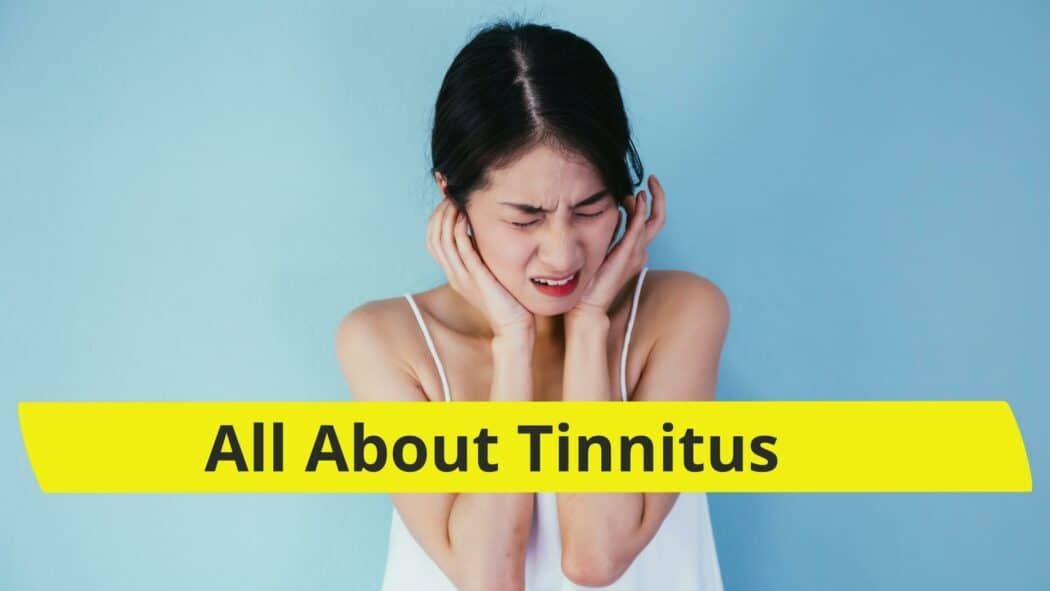Do you ever find yourself finally in peace and quiet after a long day only to be confronted with an annoying buzz or ring in your ears? This is tinnitus, and while it is not a life threatening condition, it can lead to anxiety, stress and sleep issues over time.
Understanding Tinnitus
It is estimated that 1 out of 10 people in the US suffer from it and is especially common in US veterans. It is defined as a ringing or buzzing in the ears which come from no external source – you can hear it but other can’t, because it is a sound being generated by your brain. Symptoms are different for different people. Some people may hear it as a buzz or ring, while others perceive it as a whirring sound or even a roar. It often becomes louder when you have to focus on it, such as at night or in quiet when there are less ambient sounds around you. While most cases can come and go, of the 50 million cases, roughly 20 million people struggle with chronic tinnitus, while two million have extreme and debilitating cases which can interfere with work or daily activity
Hearing Loss
About 90% of all people diagnosed with hearing loss have some form of tinnitus. This is because the two conditions occur when the fragile cells of the inner ear become damaged or destroyed. This can occur due to elevated age, exposure to loud noise, excessive use of tobacco, or alcohol, head trauma, exposure to certain chemicals or circulation issues. Hearing loss occurs as the cells of the inner ear sustain damage, limiting the amount of sound information that can be received by the brain. Similarly, when these cells become damaged, they can send feedback or static, unintentionally to the brain which manifests as the symptoms.
Tinnitus Treatment
Similar to hearing loss, there is no cure for tinnitus. However, there are several treatments which can make it a less prominent point of focus.
Lifestyle and Remedies
Over time many people with chronic tinnitus come to think of their suffering as a common part of everyday life. In order to access the highest quality of life it’s important to create strategies to cope with this condition. While many cases are not severe enough for medical treatment, many people turn to alternative therapies for finding relief.
Meditation
Stress is a major factor which drives up the symptoms. When you become stressed, the buzz becomes more prominent and noticeable. Reducing stress and refocusing on other things can significantly reduce the stress and symptoms. Meditation has been found to greatly reduce symptoms. This is because many forms of meditation ask you to simply focus on being, for a short time at first and then longer. Other aspects of your life must be temporarily filtered out of consciousness, and this includes the annoying ringing in your ears. Many people with dedicated practice find this method incredibly successful.
Exercise
Regular exercise can manage stress and improves the health of your brain and your body. You’ll find you sleep more soundly, getting the rest you need, regardless of the hum.
A Healthy Diet
Your entire health is connected. A diet free of processed foods and sugars, prioritizing vegetables and lean proteins can help your blood circulation, which in turn helps you protect your hearing health and stress levels.
Talk to Someone
The symptoms often become worse the more you focus on them. A form of talk therapy called cognitive behavioral therapy can help you decentralize your response to tinnitus, making it easier to send the ringing into the background of your consciousness.
Protect your Ears
Because hearing loss and tinnitus are so closely related it’s important to practice proper ear safety when exposed to potentially loud listening environments. Loud sounds can further damage your ears, increasing the symptoms.
Treating Tinnitus with Hearing Aids
Because it is common among people with hearing loss, properly fitted hearing aids can be very helpful. The newest hearing aids come equipped with masking features which can cover the sounds of tinnitus during the day. In addition, amplifying sound, as hearing aids do, allows your brain to struggle less and takes away stress and focus away from the sounds of tinnitus. To start the process of dealing with your tinnitus, contact us today to set up a hearing test. We can help you explore the best method for you!

